Church Plasterers: Any time you are engaged in building work or home improvements on your property in Church you will generally need to either get fresh plaster administered to a new wall or some existing plaster walls repaired. Most home owners would concur that plastering is a really skillful vocation and whilst you may be pretty versatile at DIY, it isn't the kind of project that you ought to try to do by yourself, unless of course you have considerable confidence in your capabilities. This is even more important if there are ceilings that need skimming, because you'll probably get yourself and your house in a bit of a state if you should try it. You would be sensible to bring in a professional plasterer to tackle this work, and although you shouldn't have any hassle finding a plasterer in Church, uncovering one that has a slot to fit your job in could be somewhat more tricky. Plasterers, much like many craftsmen, are generally very busy, therefore if it's feasible try to schedule the job at least a few weeks or even months before.
A certain degree of plastering can be created by even the smallest home improvement assignments. Generally it'll be applying some screeding, plaster skimming a dry lined partition, re-plastering a ceiling or fitting coving or cornices before decorating. But obviously, any one of a multitude of plastering related jobs might be needed.
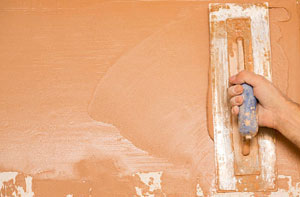
There are several ways to verify that potential Church plasterers know their stuff, one excellent method is to ask for a portfolio of past work. You should avoid employing "cowboys" for this kind of work, no matter what. Substandard plastering can lead to big problems later on, and it might not even be evident until the decorating starts.
Any imperfections will become startlingly obvious the moment some emulsion starts to be applied to your freshly plastered walls and ceilings. Your newly plastered surfaces will probably look even worse with the sun shining on them. It is really a no brainer that you ought to avoid poor tradesmen, and pick only from experienced plasterers in Church.
It is always important to remember that plastering needs to be level and smooth, since it is simply a base upon which other products are placed. Irregular surfaces are tricky to disguise, however slight imperfections and cracks can easily be repaired with filler later without much problem. Areas that are irregularly plastered can cause complications with the fitting of skirting boards, any area of tiling, the painting and wallpapering of ceilings and walls and the fitting of kitchen units.
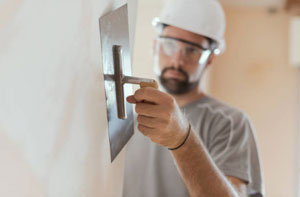
You should expect nothing less than the perfect finish directly from the trowel. A brief rub down before decorating is all that a plastered ceiling or wall should need, it should never require sanding. If the plastering has not been done competently, strenuous sanding may be required, and calls the plasterers skills into question. There is certainly something awry with your plasterer, if you hear the sound of electric sanding machines.
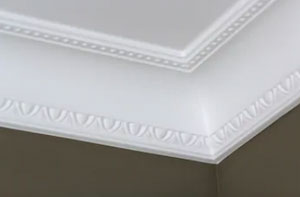
Plasterers perform many tasks but among the most common nowadays, is plastering over old artex ceilings. Artex was at its height of popularity in Church during the 70's and 80's, but currently it is not so much so. Most plasterers in Church will gladly plaster over that artex ceiling, making it look more sleek and modern. On the flip side, if you want to bring back that old style, most plasterers will just as gladly slap some artex onto your smooth, featureless ceilings.
Do-it-Yourself Plastering Church: While it is usually much better to bring in a competent plasterer in Church when you've got plastering work that should be carried out in your property, it is always possible to have a shot at doing it yourself if you are reasonably good at DIY, and have the self-confidence to attempt it. As a newbie plasterer it is advisable to start your plastering journey by practicing on a spare bedroom or an out of sight area, particularly one that already has a poor plastered surface and cannot be made worse by your endeavours. This is going to be less stressful for you, and enable you to spend some time testing out your newly found skills. To a certain degree, it's quite possible for you to re-skim a wall as many times as you like, so if you make a hash of it to begin with, you can always go back and re-do it as your abilities improve.

You might be able to get some decent plastering tips and advice by watching YouTube tutorials on the web if you do not want to go to the extreme of taking a plastering course. The problem is that some of those videos can frequently make it look simple, and plastering is actually quite challenging. Plastering is of course "hands on" process and the more you practice the more adroit you get. Through trial and error you might even develop you own solutions for getting that perfect plastered finish. But if in any doubt, follow the tried and tested methods. Confidence is the most crucial issue with plastering, and the more you do it, the more confident you are likely to get. You should be able to start plastering the other walls of your house when you have perfected this art to a standard you are satisfied with. You still have the option of calling in a professional Church plasterer to put things right if you mess it up.
Dry Lining Church (Plasterboarding)
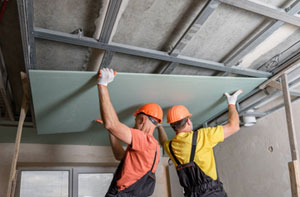
Dry lining (plasterboarding) is often needed in home improvement projects, and you will find lots of plasterers in Church who are able to provide this particular service. Dry lining is the procedure by which plasterboard is attached to a wood studding, Gypframe metal framing or a brickwork or masonry surface to form a wall surface that doesn't have to be plastered. Occasionally the plasterboard surface itself is decorated, although mostly it will get a fine skimming with a thin layer of finishing plaster, which can be painted or papered without filling. In terms of fittings, when fixing to a metal frame Jack-Point self drilling, self tapping screws are used, when fixing to a brickwork wall "dot and dab" bonding is used and when attaching plasterboard to wood studding or joists, nails or drywall screws are used.
Pebble Dashing Church
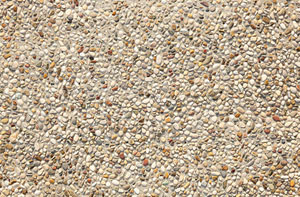
Pebble Dashing Church: Although it is not to everyones taste pebble dashing has been around for many years and used to protect and decorate the outside walls of homes in Church, Lancashire. Church plasterers will sometimes do this type of project for you, though there are pebbledashing specialists currently working in the area.
Pebble dash usually consists of 2 layers of a base made of lime and sand into which small pebbles, gravel or shells are pressed to give both renovated and new structures a decorative, maintenance free and strong surface finish. (Tags: Pebble Dash Church, Pebble Dashers Church, Pebble Dashing Church, Pebble Dash Removal Church)
Skimming Church
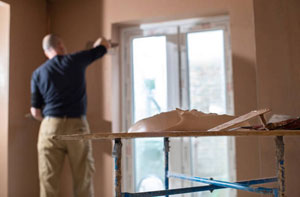
When you've got damaged plaster surfaces, new dry lining or artex that needs covering, you will need a craftsman to re-skim or skim with plaster. This is certainly one of the most commonplace tasks which plasterers are asked to carry out. In the course of home remodelling either new plasterboard walls are constructed or pre-existing plastered walls are modified or become damaged. A two coat plaster skim done by a professional will transform those flawed surfaces into smooth, glass-like finishes that are perfect for painting or wallpapering. You have to leave this for several days to dry thoroughly before you decorate over it. A perfectly flat and fault-free surface ought to be the outcome.
Screeding
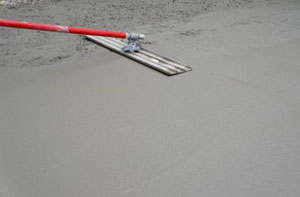
Certain plasterers in Church will also offer screeding services, where a new level floor surface is formed by the use of a cement and sand mix. Mostly screeding is applied on top of a concrete sub-floor to take on the final floor finish, to cover underfloor heating pipes or to be left as a wearing floor surface. This can considerably extend the life of the complete floor and establish its quality, durability and finish, for many years. Screed is only mixed by hand when small areas of flooring are being worked on. For bigger projects, a reliable screed pump should be used to produce an even and smooth mix of cement, sand and water, which can then be pumped straight to the required location. There are several different kinds of floor screeding available in Church, therefore you should ask to find which is suitable for your screeding project, you will be choosing from fast drying screed, floor levelling compound, unbonded screed, free-flowing screed, traditional screed, structural screed and bonded screed.
Plaster Church
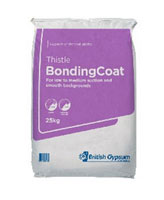
Employed for decorating and protecting the ceilings and walls of buildings, plaster is a material which has been used since the times of the Egyptians. What most of us call "plaster" in the British Isles is generally looked at as the stuff which is used for covering the inner rooms of buildings and houses, while that which is used on outside walls is referred to as "render" or "rendering". The most commonplace types of plaster typically contain either cement, lime, or gypsum, although all pretty much work in the same way. Plaster is a powder when manufactured and when needed, is simply combined with water to produce a stiff, easily workable paste immediately before application. A reaction is caused when the water and plaster are combined together, and hardening occurs as a result of the heat generated by what's known as crystallization. (Tags: Plastering Church, Plaster Church, Render Church)
Renderers Church
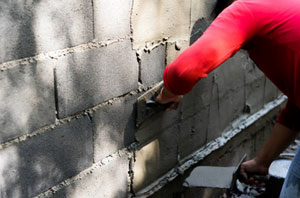
Rendering Church: Rendering is a similar technique to plastering, and is the process where a mixture of cement, sand, lime and water is applied to exterior (and now and again interior) walls in order to achieve a smooth or textured surface. A popular technique throughout Europe, rendering is particularly widespread in the Mediterranean area, notably in Italy, Greece and Spain. Largely used for aesthetic purposes a rendered finish has some useful fire retarding qualities and is also waterproof. You can get a longer lasting and more resilient result by colouring the render mix itself, though of course it is possible to paint a rendered wall.
Plastering Courses Church

Plastering Courses Church: The simplest way to either master the basics of plastering or to have the necessary skills and knowledge to embark on a career in plastering is to sign up for a plastering course at a college or training centre. You will find that there are an array of plastering courses out there for both beginners and those eager to enhance their plastering techniques. Plastering courses are available for both NVQ or City and Guilds with alternatives for either complete novices or intermediate tradesmen. Beginner courses (level one courses) tackle stuff like putting on set coats (to walls), applying floating coats, applying scratch coats, installing sheet materials, readying background surfaces and mixing up plaster materials. Intermediate and advanced (level two courses and diplomas) deal with stuff like fibrous plastering, dry lining, plastering to exterior surfaces, sand and cement screeding and reverse moulding for fibrous plasterwork. Search on Google or Yahoo to track down plastering courses in Church. You can check out City & Guilds, Diploma and NVQ courses in plastering and dry lining by clicking HERE. (Tags: Plastering Courses Church, Plasterers Courses Church, Plastering Lessons Church, Beginners Plastering Church)
Plasterer Church
A plasterer in Church is a tradesperson who exclusively with plaster, carefully spreading a smooth, even layer of plaster over an otherwise coarse and irregular surface. Plastering has been in existence for many hundreds of years and has been a traditional building finishing and repair process for thousands more. Plaster in today's world, is mainly used on the interior walls of commercial and domestic premises, to generate a smooth and even surface on which to apply the final finish. Plaster is on occasion used to form decorative and ornate mouldings and cornices that can be employed for enhancing and embellishing the internal ceilings and walls of rooms. Playing an important role in numerous home improvement projects in Church, plastering can also be used in the the construction of porches, extensions, garages and attic conversions. (Tags: Plasterers Church, Plasterer Church, Plastering Church).
Plastering Tasks Church

Church plastering specialists can generally help you with artexing a wall or ceiling, interior rendering and screeding in Church, pebble dashing restoration, tyrolean rendering Church, monocouche rendering, dragged plaster, fire and flood restorations in Church, wall crack repairs, sand and cement screeds, plastering over artex, plastering repairs, screeding before tiling, dot and dab plasterboarding in Church, plastering quotations Church, asbestos testing Church, ceiling roses and cornices, plasterboard skimming, float and set plastering Church, pitted plaster, re-skimming plasterwork, drywall lining Church, false ceilings Church, Venetian polish plaster in Church, bonding Church, Marmorino plaster, the rendering of breeze blocks Church, blown plaster, ceiling overboarding Church, skimming over dry lining Church, metal studding partitions and other plastering work in Church, Lancashire.
Church Plastering Services
- Church Domestic Plastering
- Church Ceiling Replacements
- Church Plastering
- Church Commercial Plastering
- Church Coving Installation
- Church Plaster Skimming
- Church Plasterer
- Church Plastering Estimates
- Church Plasterboarding
- Church Rendering
- Church Plaster Repairs
- Church Artexing
- Church Plasterers
- Church Dry Lining
Other Useful Trades in Church Lancashire

Undoubtedly, when you are doing home improvements and repairs in Church, Lancashire, you'll probably be in need of all sorts of different tradesmen and apart from a plasterer in Church, Lancashire, you might additionally need plasterboard installation in Church, dry lining in Church, artexing in Church, external wall insulation in Church, domestic & commercial cleaners in Church, carpenters & joiners in Church, painters & decorators in Church, coving fitters in Church, internal rendering in Church, plaster mouldings in Church, rubbish removal in Church, pebble dashers in Church, building contactors in Church, electrical re-wiring in Church, bricklaying in Church, polished plaster in Church, wall tiling in Church or screeders in Church.
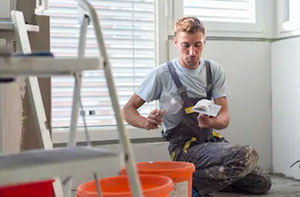 Plasterers Church
Plasterers Church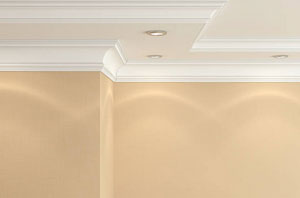 Plastering Near Me
Plastering Near Me Plasterer Church
Plasterer ChurchPlastering Jobs Church: View plastering jobs in Church here: Church Plastering Jobs
More Lancashire plasterers: Penwortham Plasterers, Lytham St Annes Plasterers, Poulton-le-Fylde Plasterers, Rawtenstall Plasterers, Haslingden Plasterers, Clayton-le-Woods Plasterers, Morecambe Plasterers, Darwen Plasterers, Nelson Plasterers, Blackpool Plasterers, Preston Plasterers, Accrington Plasterers, Ormskirk Plasterers, Fleetwood Plasterers, Oswaldtwistle Plasterers, Lancaster Plasterers, Heysham Plasterers, Bamber Bridge Plasterers, Chorley Plasterers, Leyland Plasterers, Bacup Plasterers, Skelmersdale Plasterers, Clitheroe Plasterers, Burnley Plasterers, Blackburn Plasterers, Bispham Plasterers and Colne Plasterers.
Plastering Church - Polished Plaster Church - Plasterboarding Church - Decorative Plastering Church - Plaster Skimming Church - Rendering Church - Cheap Plasterer Church - Plasterers Church - Coving Church




